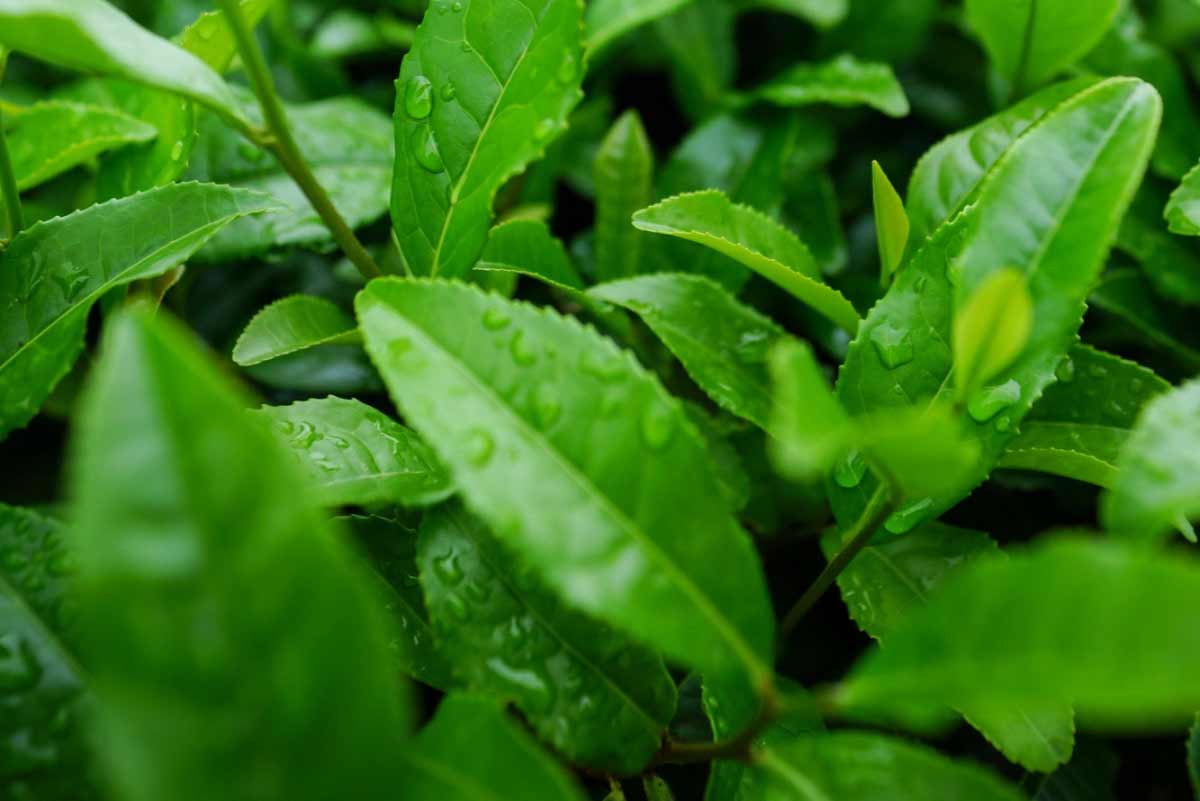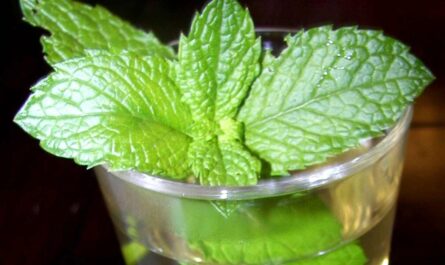What are some of Assam tea health benefits, its nutrition, recipes, & side effects? The best time to relish Assam tea is a nuanced journey through the day, each sips a unique encounter with its robust character. From the invigorating morning ritual to the serene nightcap, Assam tea adapts and enhances each moment, proving itself to be an evergreen companion in the tapestry of daily life. In this article, we will share some of Assam tea’s health benefits, nutrition, recipes, & side effects. Keep reading.
The optimal daily consumption of Assam tea is a subjective matter, contingent on individual preferences and health considerations. By embracing moderation, attuning to personal sensitivity, and prioritizing quality, one can savor the exquisite essence of Assam tea while reaping its abundant health rewards. Enjoy the journey of discovering the perfect balance for your daily tea ritual, relishing the symphony of flavors and well-being that Assam tea graciously offers.
Nutritional facts of Assam tea
Assam tea, renowned for its robust flavor and distinct malty notes, boasts an impressive array of nutritional elements that contribute to its popularity among tea enthusiasts. Beyond its invigorating taste, this tea variant is a source of essential nutrients, including polyphenols, catechins, and flavonoids. These compounds are recognized for their antioxidant properties, working harmoniously to combat oxidative stress within the body.
Antioxidant Powerhouse: Polyphenols, Catechins, and Flavonoids
The polyphenols present in Assam tea are formidable antioxidants, safeguarding the body against free radicals. These compounds play a pivotal role in neutralizing harmful molecules that can lead to cellular damage. Catechins, a subgroup of polyphenols, contribute to the tea’s overall antioxidant prowess, providing a protective shield for cells and tissues. Additionally, the flavonoids in Assam tea further enhance its antioxidant capabilities, promoting overall well-being.
A Boost for Metabolism: Assam Tea and Weight Management
For those mindful of their weight, Assam tea offers a natural ally in the journey towards a healthy metabolism. The combination of caffeine and theophylline in this tea variant stimulates the central nervous system, potentially increasing the metabolic rate. This, in turn, can aid in the efficient burning of calories, making Assam tea a subtle yet supportive component for those focused on weight management.
Vital Nutrients: Assam Tea’s Contribution to Daily Intake
Assam tea contributes not only to sensory pleasure but also to meeting daily nutritional requirements. Rich in essential minerals such as potassium, magnesium, and calcium, this tea variant complements a balanced diet. These minerals are crucial for maintaining proper bodily functions, from nerve transmission to bone health. The inclusion of Assam tea in one’s daily routine can thus be viewed as a flavorful supplement to overall nutritional well-being.
Mind and Body Harmony: L-theanine and Assam Tea
In addition to its physical benefits, Assam tea contains L-theanine, an amino acid that fosters a sense of relaxation and mental alertness. This unique combination of a mild stimulant, caffeine, and a calming agent, L-theanine, creates a balanced and focused state of mind. It provides a gentle, sustained energy boost without the jitters commonly associated with stronger caffeinated beverages, making Assam tea a soothing choice for both body and mind.
Cautions and Considerations: Moderation is Key
While the nutritional virtues of Assam tea are undeniable, it is essential to consume it in moderation. Excessive intake of caffeine, though providing a temporary energy surge, may lead to unwanted side effects such as insomnia or increased heart rate. As with any dietary component, balance and mindfulness in consumption contribute to harnessing the full spectrum of benefits that Assam tea has to offer.
How much Assam tea to drink every day?
Assam tea, renowned for its robust flavor and rich aroma, has captivated tea enthusiasts worldwide. As you embark on a delightful journey with this distinctive brew, the question arises: how much Assam tea should one consume daily to savor its benefits without compromising health?
Moderation: A Key to Enjoying Assam Tea
Maintaining a balance is paramount when relishing Assam tea. While it offers a myriad of health benefits, excessive consumption may lead to potential drawbacks. To strike an equilibrium, consider enjoying two to three cups per day, allowing your palate to revel in the tea’s essence while ensuring a harmonious intake.
Consider Individual Sensitivity and Tolerance
Individual sensitivity and tolerance levels play a crucial role in determining the ideal daily consumption of Assam tea. Factors such as age, health condition, and caffeine sensitivity must be taken into account. It’s prudent to be attuned to your body’s signals and gradually adjust your intake based on personal responses.
Health Benefits of Assam Tea
Beyond its enchanting flavor, Assam tea offers a plethora of health benefits. Rich in antioxidants, this tea aids in combating free radicals, promoting overall well-being. Its moderate caffeine content stimulates alertness, making it an ideal companion for those seeking a gentle energy boost. Additionally, Assam tea is renowned for its potential cardiovascular benefits and immune system support.
Hydration and Assam Tea
While Assam tea contributes to your daily fluid intake, it’s essential to strike a balance with other hydrating beverages. Incorporating water, herbal teas, and fresh juices into your daily routine ensures comprehensive hydration, preventing potential dehydration often associated with excessive tea consumption.
Quality Over Quantity
Emphasizing quality over quantity is paramount when indulging in Assam tea. Opting for high-quality loose leaves or whole-leaf tea bags ensures a superior and authentic tea-drinking experience. Prioritize the craftsmanship of the tea leaves to extract the full spectrum of flavors and maximize the potential health benefits.
What is the best time to drink Assam tea?
Morning Brew Bliss: Embarking upon the day with a steaming cup of Assam tea is an invigorating ritual. The robust and malty notes of Assam tea harmonize seamlessly with the dawn, awakening the senses and infusing a burst of energy. The morning sun complements the full-bodied character of Assam tea, creating a symphony that sets the tone for a vibrant day.
Noon Nectar: As the clock inches towards midday, Assam tea continues to be a delightful companion. Its bold flavor profile serves as a midday pick-me-up, providing a rejuvenating interlude amid daily tasks. The tea’s inherent richness offers a satisfying contrast to the hustle and bustle, making it a perfect beverage to accompany a brief respite during the noon hours.
Afternoon Elegance: The post-lunch hours usher in a serene ambiance, and this is precisely when Assam tea unfolds its charm with refined elegance. Sipping on a cup of Assam tea in the afternoon becomes a sensorial experience, with the amber liquid gracefully dancing between briskness and smoothness. This interplay of flavors makes for an exquisite tea-drinking affair, marking a sophisticated pause in the day.
Evening Serenity: The tranquil transition from afternoon to evening heralds another opportune moment for indulging in Assam tea. The amber hue of the tea mirrors the setting sun, creating a serene ambiance. The briskness of Assam tea, coupled with its robust undertones, provides a comforting and grounding experience as the day winds down.
Nighttime Delight: Contrary to the common notion that tea is solely a daytime companion, Assam tea gracefully transcends into the night. The subtle caffeine content, combined with its deep, satisfying flavor, makes it a suitable choice for those seeking a warm and soothing prelude to bedtime. The gentle warmth of Assam tea fosters relaxation, making it a serene conclusion to the day.
Before or After Meals: Whether preceding or following a meal, Assam tea effortlessly complements culinary indulgences. Before a meal, the briskness of Assam tea acts as a palate cleanser, preparing taste buds for the forthcoming feast. Post-meal, its comforting warmth aids digestion, creating a delightful conclusion to the dining experience.
How to Make Assam Tea
Indulging in the rich cultural heritage of Assam, renowned for its robust and malty tea, begins with the careful selection of premium Assam tea leaves. Sourced from the lush, verdant estates nestled in the Brahmaputra Valley, these leaves boast a distinct flavor profile. Choose loose-leaf Assam tea for an authentic experience, ensuring the leaves are whole and unbroken to preserve their essential oils, which contribute to the tea’s full-bodied taste.
Gathering the Essential Ingredients
To embark on the journey of crafting a perfect cup of Assam tea, assemble the elemental ingredients with meticulous attention. Secure high-quality water, preferably soft and unchlorinated, to create the ideal canvas for the tea’s infusion. Delve into the pantry to retrieve the prized Assam tea leaves, a teapot or an infuser, and a stopwatch or timer to manage the precise brewing duration. Optionally, consider enhancing the experience with additives such as milk, sugar, or spices, according to personal taste preferences.
Perfecting the Proportions
Achieving the perfect balance in brewing Assam tea is an art that revolves around mastering proportions. For a single cup, measure approximately one teaspoon of Assam tea leaves, adjusting the quantity based on personal preferences for strength. If opting for a pot, adhere to a ratio of one teaspoon of tea leaves per 8 ounces of water. The proportionate blending of tea leaves and water lays the foundation for a harmonious infusion, ensuring the tea’s robust flavors are unleashed with precision.
Artful Steps in Crafting Assam Tea
The intricate process of transforming Assam tea leaves into a delectable beverage unfolds in a series of artful steps. Begin by heating the water to a near-boiling point, around 200-212°F (93-100°C), the optimal temperature for extracting the tea’s full flavor spectrum. Gently place the measured tea leaves into the teapot or infuser, allowing them room to unfurl and release their essence. Pour the hot water over the leaves, initiating the infusion process, and set the timer for precisely three to five minutes, tailoring the brew time to desired strength.
The Culmination of Assam Tea Nirvana
As the timer gracefully counts down, anticipation builds for the culmination of Assam tea nirvana. Once the brewing time elapses, carefully remove the tea leaves or infuser to prevent over-steeping, which could result in bitterness. For those favoring a robust kick, the addition of milk and sugar is an option that transforms the beverage into a comforting, soul-warming elixir. Sip slowly, savoring the intricate symphony of flavors that Assam tea, meticulously crafted from leaf to cup, has to offer.
Health benefits of Assam tea
Here are some of the health benefits of Assam tea:
1. Cardiovascular Health Boost
Assam tea, renowned for its robust flavor and rich aroma, offers a plethora of health benefits, notably contributing to cardiovascular well-being. The tea is abundant in antioxidants, such as catechins and polyphenols, which play a pivotal role in reducing oxidative stress and promoting heart health. Regular consumption of Assam tea may assist in improving blood vessel function and lowering the risk of cardiovascular diseases, providing a tasty and heart-friendly addition to one’s daily routine.
2. Immune System Support
Embracing Assam tea as a daily beverage can fortify the immune system, thanks to its ample supply of vitamins and minerals. This tea contains essential nutrients like vitamin C, zinc, and manganese, which collectively enhance the body’s defense mechanisms. By incorporating Assam tea into a balanced diet, individuals may experience increased resilience against infections and illnesses, fostering overall well-being.
3. Metabolism Enhancement
For those seeking a natural boost to their metabolism, Assam tea emerges as an excellent choice. The high caffeine content in Assam tea stimulates the central nervous system, leading to increased metabolic rates. This, in turn, aids in weight management and can be a valuable addition to a healthy lifestyle. The invigorating properties of Assam tea make it an ideal pick-me-up beverage for those looking to revitalize their energy levels.
4. Cognitive Function Improvement
Delving into the cognitive benefits of Assam tea unveils its potential to enhance brain function. The combination of caffeine and L-theanine in this tea promotes alertness and mental clarity without the jittery side effects often associated with high-caffeine beverages. Regular consumption may contribute to improved focus, concentration, and overall cognitive performance, making Assam tea an enticing option for those seeking mental acuity.
5. Digestive Health Aid
Assam tea can be a soothing elixir for digestive discomfort. It contains compounds that may help in easing indigestion and reduce inflammation in the digestive tract. Additionally, the moderate caffeine content can act as a gentle stimulant, aiding in the smooth functioning of the digestive system. Incorporating Assam tea into one’s routine might offer a flavorful solution to occasional digestive issues.
6. Antibacterial Properties
In the realm of natural health remedies, Assam tea stands out for its inherent antibacterial properties. Polyphenols found in the tea possess antimicrobial effects, potentially assisting the body in combatting harmful bacteria. Regular consumption may contribute to maintaining a healthy balance of gut flora, further fortifying the body’s defense against various infections and promoting gut health.

7. Bone Health Support
Ensuring optimal bone health becomes more attainable with the inclusion of Assam tea in one’s diet. The tea contains significant levels of fluoride and tannins, compounds known for their positive impact on bone density and strength. Incorporating Assam tea into a well-rounded diet may contribute to the maintenance of robust skeletal structures, particularly relevant for individuals concerned about bone health.
8. Stress Reduction
In the fast-paced modern world, the stress-alleviating properties of Assam tea offer a welcomed respite. The amino acid L-theanine, combined with moderate caffeine levels, promotes relaxation without inducing drowsiness. This unique combination makes Assam tea an ideal beverage to unwind and manage stress, providing a moment of tranquility amid hectic schedules.
9. Blood Sugar Regulation
Assam tea exhibits the potential to contribute to the regulation of blood sugar levels. Studies suggest that certain compounds found in the tea may assist in improving insulin sensitivity, making it a favorable choice for individuals concerned about diabetes or those aiming to maintain stable blood sugar levels. Incorporating Assam tea into a balanced diet may offer a flavorful and health-conscious approach to blood sugar management.
10. Hydration Assistance
Staying adequately hydrated is a cornerstone of overall health, and Assam tea can play a role in meeting hydration needs. While not a water replacement, the fluid content in tea contributes to daily fluid intake. Choosing Assam tea as a hydrating option adds a flavorful dimension to the process, making it an appealing choice for individuals seeking variety in their beverage choices.
11. Respiratory Health Promotion
The aromatic essence of Assam tea extends beyond mere taste, potentially offering respiratory health benefits. The theaflavins and thearubigins present in the tea possess anti-inflammatory properties that may provide relief to individuals with respiratory conditions. The comforting warmth of Assam tea can be a soothing ally for respiratory well-being, making it a comforting choice during colder seasons.
12. Skin Radiance Enhancement
Unlocking the beauty-enhancing properties of Assam tea reveals its potential to promote skin radiance. The antioxidants in the tea help combat free radicals, reducing oxidative stress and contributing to a healthier complexion. Regular consumption may assist in maintaining skin elasticity and suppleness, making Assam tea a delightful addition to skincare routines for those seeking a natural glow.
13. Anti-Aging Potential
As a natural source of antioxidants, Assam tea holds promise in the realm of anti-aging. The compounds present in the tea may help neutralize free radicals, which are implicated in the aging process. Including Assam tea in a well-rounded diet may offer a delicious and health-conscious strategy for individuals looking to support their skin’s vitality and delay the signs of aging.
14. Anti-Inflammatory Properties
The anti-inflammatory properties of Assam tea contribute to its holistic health benefits. Polyphenols and other bioactive compounds in the tea exhibit anti-inflammatory effects, potentially assisting in reducing inflammation throughout the body. Regular consumption may be a flavorful strategy for individuals seeking natural ways to manage inflammatory conditions and promote overall wellness.
15. Detoxification Support
Amidst the various health benefits, Assam tea can also play a role in supporting the body’s natural detoxification processes. The antioxidants in the tea aid in neutralizing toxins, potentially assisting the liver and other organs in eliminating harmful substances. Incorporating Assam tea into a balanced diet may complement the body’s natural detox mechanisms, providing a flavorful and health-conscious addition to detox routines.
16. Improved Oral Health
Beyond its tempting taste, Assam tea may contribute to oral health. The presence of fluoride in the tea can strengthen tooth enamel, reducing the risk of cavities and promoting overall dental well-being. Including Assam tea in oral care routines adds a delightful aspect to maintaining a healthy smile, making it a flavorful choice for those mindful of their dental hygiene.
17. Balanced Mood Regulation
The interplay of caffeine and L-theanine in Assam tea not only enhances cognitive function but also contributes to mood regulation. The calming effects of L-theanine combined with the alertness induced by caffeine create a balanced mood-enhancing experience. Sipping on Assam tea may offer a delightful and natural way to uplift one’s spirits, providing a flavorful companion during both busy and leisurely moments.
18. Improved Sleep Quality
Contrary to the perception of all teas being sleep disruptors, Assam tea, with its moderate caffeine content, can be enjoyed without compromising sleep quality. The combination of caffeine and L-theanine promotes relaxation without causing drowsiness. Enjoying a cup in the early evening may be a soothing ritual that contributes to winding down and preparing for a restful night’s sleep.
19. Aid in Headache Relief
For those seeking a natural remedy for headaches, Assam tea may offer relief. The caffeine content, known for its vasoconstrictive properties, can potentially alleviate certain types of headaches. Additionally, the act of sipping warm tea and the calming effects of L-theanine may contribute to relaxation, providing a soothing experience for individuals dealing with occasional headaches. How AI, ChatGPT maximizes earnings of many people in minutes
20. Social and Cultural Connection
Beyond its health merits, Assam tea holds cultural significance and serves as a social connector. Sharing a cup of Assam tea fosters social bonds, creating moments of connection and camaraderie. Embracing this beverage transcends its physiological benefits, becoming a ritual that enriches lives by bringing people together, making the experience of enjoying Assam tea a holistic celebration of health and community.
Side effects of Assam tea
Assam tea, renowned for its robust flavor and rich aroma, is a popular beverage that originates from the lush, verdant fields of the Assam region in India. While this tea is celebrated for its numerous health benefits, it is imperative to explore potential side effects that may arise from its consumption. Motivation – Mind – Success – Thinking – Productivity – Happiness
1. Caffeine Sensitivity
Individuals with heightened sensitivity to caffeine should exercise caution when indulging in Assam tea. This variety contains a significant amount of caffeine, which may lead to restlessness, insomnia, or increased heart rate in susceptible individuals.
2. Digestive Discomfort
For some tea enthusiasts, excessive consumption of Assam tea may trigger digestive discomfort. Issues such as bloating, gas, or mild stomach cramps may manifest, particularly in those with a sensitive digestive system. Business – Money Making – Marketing – E-commerce
3. Staining of Teeth
The robust pigments present in Assam tea may contribute to the staining of teeth over time. Regular dental care practices are advisable to mitigate potential discoloration caused by the consumption of this deeply-hued tea.
4. Dehydration
While tea is often associated with hydration, excessive consumption of Assam tea may lead to dehydration due to its diuretic properties. It is essential to balance tea intake with an adequate intake of water to maintain optimal hydration levels. Health books, guides, exercises, habits, Diets, and more
5. Anxiety and Nervousness
The elevated caffeine content in Assam tea may exacerbate feelings of anxiety or nervousness in certain individuals. Monitoring personal tolerance levels and adjusting tea consumption accordingly can help manage these effects.
6. Interference with Iron Absorption
Assam tea contains tannins, compounds that can hinder the absorption of non-heme iron from plant-based foods. Individuals with iron deficiency or anemia should be mindful of this potential interaction and consider adjusting their tea consumption. Fitness – Meditation – Diet – Weight Loss – Healthy Living – Yoga
7. Insomnia
Consuming Assam tea, especially in the evening, may lead to difficulties falling asleep or disrupted sleep patterns due to its caffeine content. Opting for decaffeinated variants in the evening can help mitigate this side effect.
8. Headaches
In some cases, excessive consumption of Assam tea may trigger headaches, especially in individuals prone to migraines or tension headaches. Moderation in tea intake and staying well-hydrated are advisable to prevent such occurrences. RPM 3.0 – 60% CONVERSION & Money for Affiliate Marketing
9. Blood Pressure Concerns
The stimulating properties of Assam tea may temporarily elevate blood pressure levels. Individuals with hypertension should be mindful of their tea consumption and consider consulting with a healthcare professional.
10. Allergic Reactions
While rare, some individuals may experience allergic reactions to compounds present in Assam tea. Symptoms may include itching, swelling, or difficulty breathing. If such reactions occur, seeking immediate medical attention is crucial. Tea, Coffee, Energy Drinks, Juice, Beverage, Smoothie, and more
Final thought
While Assam tea offers a delightful and invigorating experience, it is essential to be aware of potential side effects. Moderation, individual tolerance awareness, and seeking professional advice if needed are key aspects of enjoying Assam tea responsibly.
Other Interesting Articles
- 21 Da Hong Pao Tea Health Benefits, Recipe, Side Effects
- 23 Shui Jin Gui Tea Health Benefits, Recipe, Time, Side Effects
- 22 Tie Luo Han Tea Health Benefits, Recipe, Side Effects
- 23 Shui Xian Tea Health Benefits, Recipe, Time, Side Effects
- 23 Bai Jiguan Tea Health Benefits, Recipe, Time, Side Effects
- 20 Tieguanyin (Iron Goddess) Tea Health Benefits, Side Effects
- 21 Mi Lan Xiang Dan Con Tea Health Benefits, Side Effects
- 21 Ancient Tree Dan Cong Tea Health Benefits, Side Effects
- 23 Common Disadvantages of Drinking Tea in the Morning
- 20 Disadvantages of Drinking Tea on Your Empty Stomach
- 25 Benefits of Drinking Tea in the Afternoon with Cold Water
- 25 Benefits of Drinking Tea in the Afternoon with Coffee, Cons
- 25 Benefits of Drinking Tea in the Evening with Mint, Cons
- 21 Guan Yin Tea Health Benefits, Recipe, Time, Side Effects
- 23 Dancong Tea Health Benefits, Recipe, Time, Side Effects
- 23 Cassia Tea Health Benefits, Recipe, Time, Side Effects
- 19 Da Yu Lin Tea Health Benefits, Recipe, Time, Side Effects
- 19 Dong Ding Tea Health Benefits, Recipe, Time, Side Effects
- 21 Dong Fang Meiren Tea Health Benefits, Recipe, Side Effects
- 19 Alishan Tea Health Benefits, Recipe, Time, Side Effects




